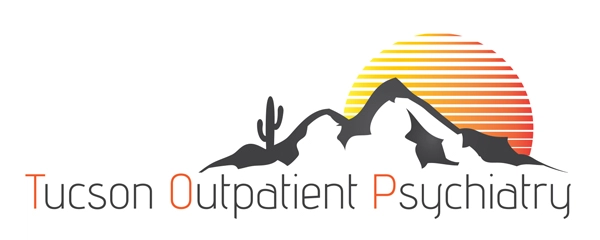
Cognitive Behavioral Therapy (CBT) is one of the most trusted tools in modern mental health care. It equips individuals with actionable strategies to shift negative thought patterns and improve emotional resilience. However, the impact of CBT becomes even more profound when combined with complementary mental health therapies. At Tucson Outpatient Psychiatry, we often integrate additional methods to create a well-rounded and personalized care plan for our clients.
In this article, we explore four powerful therapies that complement CBT: medication management, group therapy, mindfulness practices, and Dialectical Behavioral Therapy (DBT). Each approach offers unique benefits, and when used in tandem with CBT, they can significantly improve mental health outcomes.
Medication Management: Stabilizing Symptoms for Deeper Progress
When psychological symptoms interfere with day-to-day functioning, medication can offer the stability needed to engage fully in therapy. While CBT addresses the cognitive and emotional side of mental health, medication management helps regulate the biological components of conditions such as anxiety, depression, OCD, and bipolar disorder.
At Tucson Outpatient Psychiatry, our psychiatric team works closely with clients to determine the most appropriate medication options based on their specific needs. By minimizing disruptive symptoms, medication makes it easier for individuals to focus on learning and applying CBT strategies.
Group Therapy: Shared Growth and Social Learning
Group therapy provides a structured environment where individuals can learn from others who are experiencing similar challenges. It enhances the skills taught in CBT by offering peer support, exposure to different perspectives, and opportunities to practice communication and coping strategies in real time.
CBT-based group settings often involve discussions around problem-solving, emotional regulation, and cognitive reframing—skills that are fundamental to lasting mental health improvement. For those who feel isolated or misunderstood, group therapy can offer a strong sense of belonging and validation.
Mindfulness Practices: Building Awareness and Reducing Reactivity
One of the most effective tools to enhance CBT is the integration of mindfulness therapy. Mindfulness involves staying present in the moment without judgment, a practice that naturally complements CBT’s focus on examining and shifting negative thought patterns.
Mindfulness helps individuals become more aware of their inner dialogue, emotional responses, and behavioral triggers. This awareness makes it easier to implement CBT strategies in everyday life. At Tucson Outpatient Psychiatry, mindfulness-based practices are often woven into our therapeutic approach to help clients regulate stress, improve focus, and increase emotional balance.
Dialectical Behavioral Therapy (DBT): A Skill-Based Expansion of CBT
DBT is an evidence-based treatment that evolved from CBT, but it takes therapy a step further by emphasizing emotional regulation, interpersonal effectiveness, distress tolerance, and mindfulness. Originally designed to treat borderline personality disorder, DBT has been widely adapted for other mental health challenges including anxiety, PTSD, and mood disorders.
Combining CBT with DBT therapy offers clients a deeper toolkit. Where CBT challenges unhelpful thoughts, DBT provides skills to manage intense emotions and navigate complex relationships more effectively. At Tucson Outpatient Psychiatry, DBT is available through both individual and group formats, creating flexibility in how clients engage with the material.
Why Complementary Therapies Matter
Mental health is complex and deeply individual. No single method works for everyone, which is why integrated care is essential. By combining CBT with other therapeutic approaches, clients receive a more nuanced and personalized treatment experience. This synergy often leads to faster, more sustainable progress and a greater sense of empowerment.
At Tucson Outpatient Psychiatry, we emphasize collaboration and customization. Whether you’re just beginning therapy or seeking to enhance an existing treatment plan, we’re here to guide you toward a more balanced and fulfilling life.
Start Your Holistic Mental Health Journey Today
If you’re exploring therapy in Arizona, consider a comprehensive approach that integrates CBT with proven complementary methods. Contact Tucson Outpatient Psychiatry to learn more about how we personalize care through a range of therapeutic options—from CBT and DBT to mindfulness, medication management, and group support.
Take the first step today toward a more resilient and grounded version of yourself. Your mental health journey is unique—and we’re here to help every step of the way.



